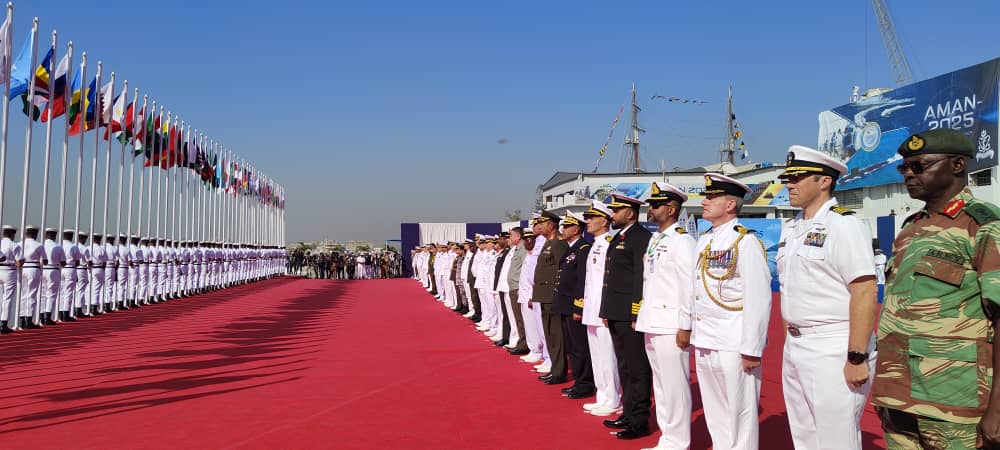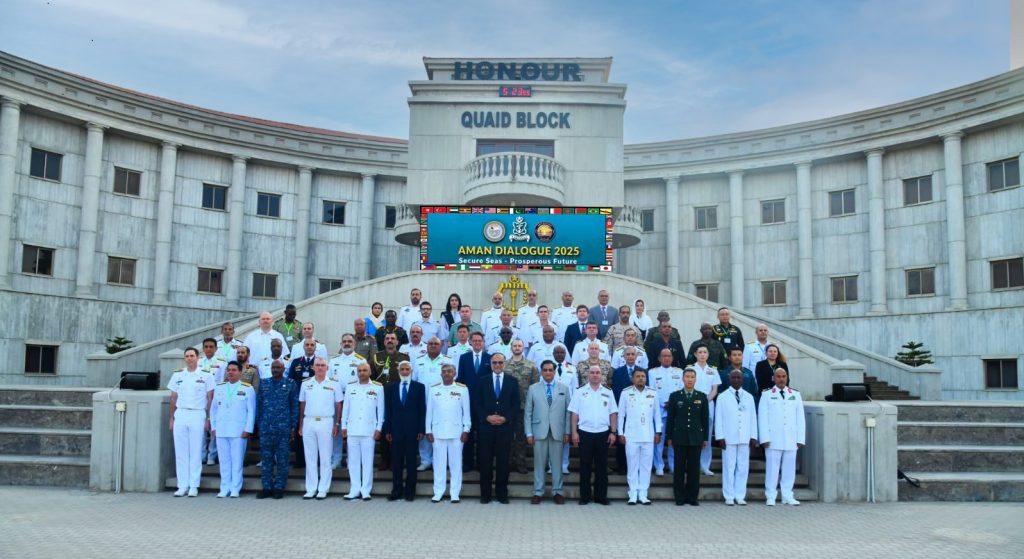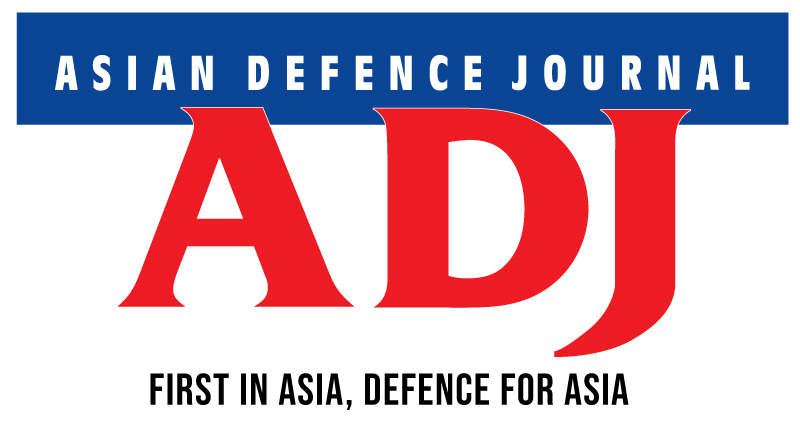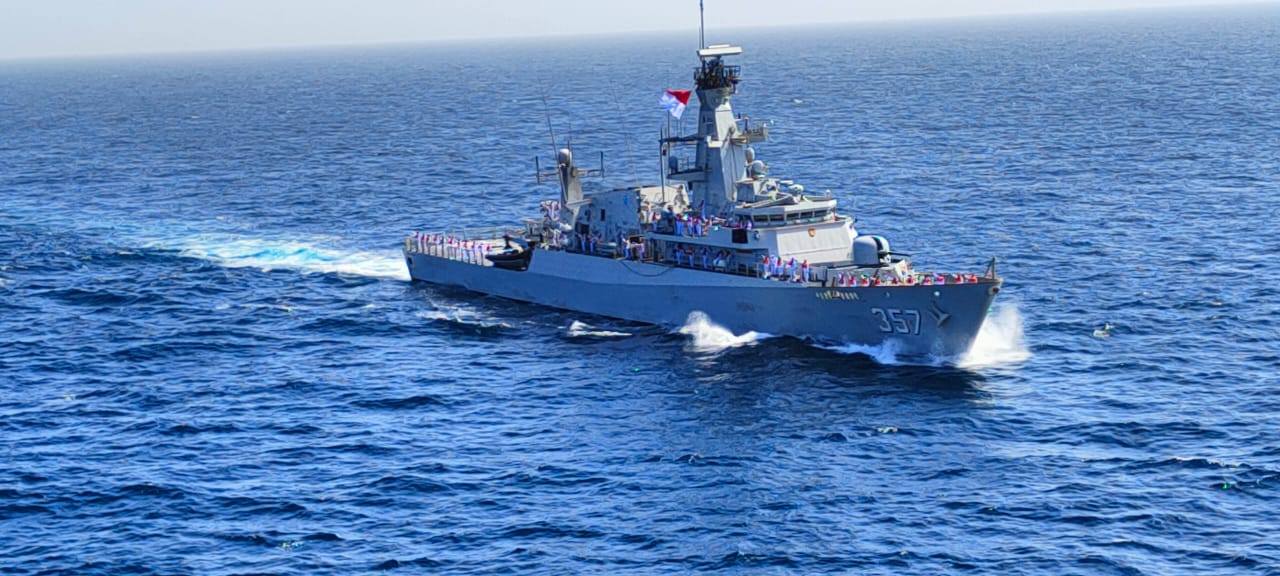Lessons of Peace from Exercise AMAN 25

Pakistan Navy’s multinational Exercise AMAN 25 might be over, but the impact of the exercise still lingers to all participants and stakeholders of the biennial series of naval drills.
AMAN, which means peace in Urdu is meant to promote regional peace, collective collaboration, and trusts amongst nations – not only those surrounding the Indian Ocean Region (IOR), but also for the global community.

The ninth iteration in its series of exercises, AMAN 25 has grown in size, from the participation of 28 nations in the inaugural series of drills in 2007 to 60 countries, proves that the exercise is gaining traction among the world’s naval forces and maritime law enforcement agencies as platform of importance in building mutual trust and camaraderie.
Participating Vessels
Naval forces from friendly countries once again showcased support for the series of drills by deploying naval ships to participate in the exercise: the Bangladesh Navy deployed the largest ship in its fleet, frigate BNS Samudra Joy; the PLA Navy deployed two ships : PLANS Baotou, a Type 052D guided missile destroyer, and PLANS Gaoyouhu, a Type 903A replenishment ship, while the Indonesian Navy deployed corvette KRI Bung Tomo.
Japan Maritime Self Defence Force’s destroyer JS Murasame, Royal Saudi Navy’s vessels- corvettes HMS Jazan and HMS Hail, Royal Navy of Oman’s offshore patrol vessel RNOV Sadh, Royal Malaysian Navy’s patrol vessel KD Terengganu, Sri Lanka Navy’s offshore patrol vessel SLNS Vijayabahu, US Navy’s expeditionary mobile base vessel USS Lewis B. Puller, Islamic Republic of Iran Navy’s destroyer IRINS Jamaran, and United Arab Emirates Navy’s Abu Dhabi-class corvette, P-191 were also part of the week-long maritime exercise.
For the first time ever, Pakistan Navy’s Agosta-B-class submarines, PNS Khalid and PNS Hamza took part in the international fleet review, although currently undergoing modernisation by Turkish defence company, STM.
Air assets that deployed include Pakistan Navy’s ATR72/500 aircraft, Z-9E and Sea King helicopters, and the P-3C Orion long-range maritime patrol aircraft, Pakistan Air Force’s JF-17A/B Thunder marinised fighter aircraft, and Turkish Navy’s C-72 maritime utility aircraft.
AMAN Dialogue: Leveraging on Partnerships

AMAN 25 comprised the much-anticipated key feature – the AMAN Dialogue. As Pakistan’s Chief of Naval Staff, Admiral Naveed Ashraf affirmation to ADJ, the inaugural AMAN Dialogue featured subject matter experts who are key practitioners in championing maritime security issues affecting the region. The platform was indeed a good mixture of subject matter experts that comprised the academia and maritime security practitioners.
While the discussions focused on the overarching theme of interoperability and partnerships in the maritime domain, AMAN Dialogue 2025 – the first in the series this year – also impressed on the recent conundrum of global climate change, and new technologies in monitoring and safeguarding the security of the Exclusive Economic Zone (EEZ).

Quoting Admiral Naveed in his opening remark, “AMAN Dialogue’s theme for this year, Secure Seas, Prosper Future, encapsulates a vision for the Indian Ocean region. We envision these waters not as an arena of competition but as a common avenue for cooperation.” The Admiral added that the magnitude and diversity of evolving threats and challenges are such that no country has the way with them to tackle them alone.
With the theme – “Secure Seas, Prosperous Future”, subject matter experts provided their inputs on the roles of the naval forces, especially those in the Indian Ocean Region (IOR) in protecting this waterway, which carries nearly 100,000 volumes of trades each year. As one of the panellists firmly stressed, there has, and must be a clear demarcation of the role of the navies and their respective governments in protecting the IOR. It will always be the salient objective of the naval forces and maritime law enforcement agencies to support the policies of their governments in protecting the seas in terms of deterrence and pre-emptive measures to promote peace, while still maintaining security at the area.
Mutual Security Concerns
Pakistan’s Minister of Defence, Khawaja Asif in his keynote address impressed that nations synchronise their efforts and resources to extract greater gains, as uninterrupted use of seas and oceans remain the strategic interest of the global community.
“The maritime domain today is a critical crossroads. Our oceans carrying over 80% of global trade represent not just shipping lanes but the arteries of global prosperity,” said the Minister of Defence.
AMAN Dialogue impressed on maintaining security in the Indian Ocean Region, where destinies of many nations intertwine. This, considering that the region holds over 50% of global oil and gas reserves, with about 20% of refining facilities along its shores. The vastness of oceans and its importance in shared economic prosperity demands collaboration to further nation’s economic interests while countering rising challenges.
Present and Emerging Maritime Challenges
The rapid change in global climate has affected many nations, especially those which major economy and livelihood largely dependent on the seas. While maritime crimes such as human trafficking, smuggling, piracy as well as and illegal, unregulated and unreported (IIU) fishing are still the major concerns, naval and maritime forces must also face the persistent challenges such as violation of environment regulations, for example waste and ballast water, deliberate oil and chemical spills, damage to subsea cables, and the most important of all – the rapidity in global climate change, which have big impact on the marine ecosystem. AMAN Dialogue 2025 brilliantly tackled these issues with many insights on measures forward to address this issue collaboratively. Concisely, military solutions alone are insufficient, as there is a pressing need for inclusive international and regional cooperation tailored to local needs.
With the rapid advent of new technology, AMAN Dialogue also addressed the need for the implementation of artificial intelligence (AI) in addressing maritime security challenges by imminent speakers. Advanced naval forces, such as the Italian Navy shared their experience of safeguarding security at sea with satellite technology.
The Sea – Common Responsibility

In brevity, Exercise AMAN 25 not only propagated the message of peace, cooperation and collaboration among the global naval and maritime forces, but also an avenue for sharing issues of mutual concern, emerging trends, and sharing of best practices and experiences of the forces in addressing their challenges.
Pakistan Navy’s efforts in organising this large-scale multinational event is an excellent measure to ensure that traditional and rising challenges can be addressed in a relaxed and friendly atmosphere, crossing all oceans, notwithstanding how pressing the issues might be.
Exercise AMAN 25 has set an exemplary standard on how issues can be addressed by implementing diplomatic and pragmatic manner on issues of common concern. It serves as a catalyst for action, a platform for forging lasting partnerships, building friendships and enduring relationships, all to resonate, to resolve, as embodied in the motto of exercise itself: together for peace. The success of this event has set a bar for others to follow to ensure the preservation of the security of our seas for the mutual benefit of generations to come. –shp/adj/aaa (Photos:Pakistan Navy, AAA)


